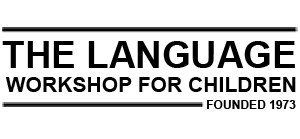What educator or parent doesn’t want their children to have equal opportunities for academic and professional success?
Agreeing that every child should have equal access to high-quality early childhood education is almost a no-brainer. The hard part is defining exactly what that means and how to facilitate it. Are we speaking of more funding for schools? Additional resources? More parental involvement? All of the above?
Equity vs. Equality: Understanding the Differences
As terms, equality and equity are often used interchangeably. While similar in theory, there are a number of key differences between the two and understanding these differences is the first step in ensuring every child has the chance to succeed. Equality is the act of treating every student the same. Equity is the act of making sure every student has access to the support they need to succeed.
In general, equality deals with populations and cultures. It’s usually generic and focused on a group rather than an individual student. Equal solutions are those that are universally applied across the board. Equity, on the other hand, tends to be more adaptable and focused on the individual student.
What Goes into Providing Equitable Solutions?
- Money: Is funding equitable? Do schools with lower-income populations have access to greater financial resources?
- Academic Standards: Are students expected to meet high standards, and are all students given the support they need to meet these standards?
- High Quality Content and Educators: Do all students have access to high quality content that meets their unique educational needs? Do they have access to highly-qualified teachers?
Ensuring Equitable Solutions for Your Kids
Equity means understanding the unique challenges and barriers each student and population faces and providing the necessary support to ensure everyone is given the resources they need to overcome these barriers.
Largely, this is a systemic issue that requires state and nation-wide changes. But, as a parent, there are a few things you can do to help guarantee your child has the same chance of success as any other student. This means working with your school district, building collaborative parent-teacher relationships, and doing the necessary research into resources that might help your child fill in gaps of knowledge
The Language Workshop for Children was built on a belief in equity and equality. Our live, one-on-one private lessons, tutoring, and test prep solutions were intentionally designed to provide each and every student with a truly personalized learning path. From working with a student’s class textbook to reorganizing lesson plans to address gaps in knowledge, our dedicated team of private instructors leverage the bond they form with students to curate personalized success stories.




